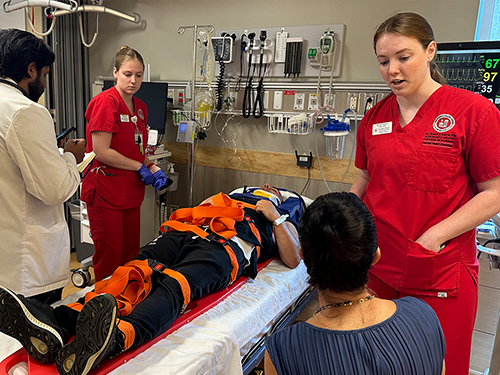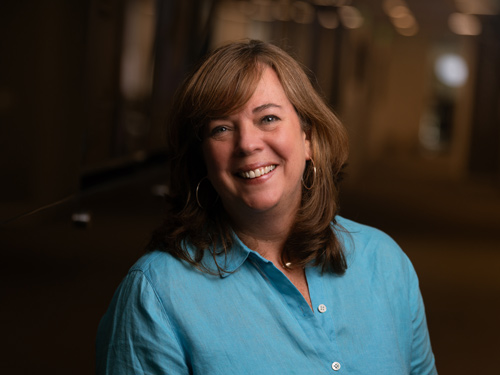Connect with us!
Discover the benefits of earning your degree from Sacred Heart University.
All classes starting prior to 11 a.m. will be remote. Classes after 11 a.m. will be in person. Non-essential staff should work remote until 11 a.m. then report to campus as scheduled.
Sacred Heart's MSW program is guided by ethical principles of service, respect for human dignity, social and economic justice, and the needs of vulnerable and diverse populations.
Through direct clinical or direct community practice, you will explore human behavior in the social environment, social work generalist practice, social welfare policy, social work research, human diversity and social justice. You’ll enhance this knowledge with specialized skills in social work practice and assessment, treatment planning, interventions, and practice evaluation. You’ll be prepared for leadership roles in generalist and specialized practice.


Discover the benefits of earning your degree from Sacred Heart University.
Choose from an option that fits your schedule. All options provide an exceptional learning experience taught by the same respected, experienced faculty.
As a full-time student, you will attend classes on campus and can complete your MSW (60 credits) in two years. Courses meet one full weekday. View a sample schedule.
As a part-time student, courses will be offered in a hybrid format meeting on alternating Saturdays on campus with supplemental coursework online. You will complete your MSW degree in three years (60 credits). View a sample schedule.
Students who hold a BSW from a CSWE-accredited institution (30 credits) can complete an Advanced Standing plan of study in one year on campus. Courses are offered all day Thursday. View a sample schedule.
Part-Time and Advanced Standing students also have the option to earn the MSW program 100% online, which is suited to students balancing graduate school with other commitments.
Students apply to the Bachelor’s-Master of Social Work (MSW) Dual Degree Program as incoming freshmen and are admitted directly into the graduate program at the same time as their admission as undergraduate students. Dual Degree program options include:
The Direct Clinical Practice specialization focuses on practice with individuals, couples, families, and small groups, instructing students in a variety of principles for assessment and intervention, including strengths, person-in-environment, psychosocial and human development theories, evidence-based therapeutic approaches, as well as Critical Race and related macro theories germane to Ecological theory and anti-racist practice.
Jobs as a clinical social worker include counseling, psychotherapy, casework, care coordination, health care and mental health settings.
Direct Community Practice focuses on practice with micro to macro client and constituent systems, including large groups, organizations, communities, and governments, with specific focus on organizational and community theories and frameworks as well as leadership and management theories, as well as Critical Race and Ecological theory, and anti-racist practice.
Jobs in this practice area include work in clinical and community settings, especially in administration, community assessment and organizing, as well as in policy advocacy, community and economic development, and politics.
SHU’s Ph.D. in Social Work is designed as a “practice” Ph.D. which is offered primarily to MSW's whose concentration has been in clinical/community practice. The degree provides doctoral level investigation and research rigor to career social workers engaged in community practice settings and initiatives. The Ph.D. program prepares candidates for leadership positions in social services agencies as well as for teaching positions in higher education.
Earn a CAS in play therapy from New England’s first credentialed play therapy education center, the Sacred Heart Institute for Play Therapy and Expressive Arts Education and Research.
The careers and professions available to graduates with a MSW degree are extensive and include direct/clinical, direct/community, administrative, or policy work with or on behalf of a variety of populations including children and families, older adults, persons with mental health needs and homeless persons. Occupational outlooks for healthcare social workers in particular are on the rise and include geriatric social workers, hospice and palliative care, and medical social workers.
The U.S. Bureau of Labor Statistics expects an overall projected growth for social workers of 6% (44,700 new jobs) from 2024 to 2034 and is faster than the average of all occupations.
My professors and peers have challenged me to think deeply, act boldly and cultivate an empowered sense of self that I am thrilled to go forth and share in the field. The study of social work has made me a stronger provider to those I serve professionally, a wiser support to those I love as family and friends and a better advocate and caretaker for myself. I am forever ever changed by my time at SHU, and have learned a valuable lesson about the power of community that will inform all of my future endeavors.
As the world acclimates to the “new normal” I feel equipped to manage and advocate for the families that I currently work with. During these times empowering our citizens with resources and providing accurate information is part of our role as social workers. The Sacred Heart University Social Work professors and faculty designed a program that will withstand the changing times. I am so honored to have completed my degree at SHU. My academic achievements are a direct reflection of the support and dedication the staff invests in each and everyone of its learners.


